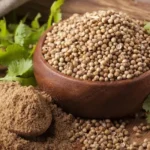The Role of Herbalists in Modern Medicine
In recent years, the practice of herbalism has seen a resurgence, with many people turning to herbal remedies to complement their modern medical treatments. Herbalists are trained professionals who specialize in using plants and herbs to promote health and treat ailments. They play a crucial role in modern medicine by bridging the gap between traditional healing practices and contemporary healthcare.
1. Bridging Traditional Knowledge and Scientific Research
Herbalists are often deeply connected to traditional healing systems that have been passed down through generations. This knowledge, grounded in the use of plants for medicinal purposes, has been used for thousands of years across different cultures. However, in today’s world, these practices are complemented by scientific research, which helps validate and refine their effectiveness.
Many herbalists now combine their traditional knowledge with the latest research in pharmacology, chemistry, and clinical studies. They use scientific data to guide their herbal recommendations, ensuring that remedies are both effective and safe for modern use. This blend of tradition and science allows herbalists to adapt ancient practices to contemporary health needs.
2. Supporting Conventional Medical Treatments
Herbalists work alongside conventional medical professionals, often providing complementary treatments to support primary care. For example, herbal remedies can help manage chronic conditions such as stress, anxiety, and digestive issues, or aid in boosting the immune system during illness recovery.
In some cases, herbalists may recommend herbs to alleviate the side effects of prescription medications, such as nausea or fatigue, enhancing the overall well-being of patients. However, it’s essential that herbalists work in coordination with doctors to avoid potential interactions between herbs and medications.
3. Holistic Approach to Health and Wellness
One of the core principles of herbalism is its holistic approach to health. Herbalists view the body as an interconnected system, where physical, emotional, and mental health are all factors in overall wellness. Rather than simply treating symptoms, herbalists strive to address the root causes of illness, taking into consideration lifestyle, stress levels, diet, and other factors that contribute to health.
By providing personalized herbal recommendations, herbalists tailor their approach to each individual’s unique needs. They focus on prevention, strengthening the body’s natural ability to heal itself, and supporting long-term health rather than just offering short-term fixes.
4. Providing Natural Alternatives
Many people are turning to herbal medicine as a natural alternative to synthetic drugs. Some individuals prefer herbal remedies due to concerns about the potential side effects and long-term use of pharmaceutical medications. Herbalists offer natural options for those seeking to avoid synthetic drugs or reduce their dependency on them.
Herbal medicine, in many cases, provides an effective alternative to over-the-counter remedies. For instance, herbs like ginger or peppermint can be used to relieve nausea, while valerian or chamomile is known to improve sleep quality. Herbalists help clients choose the most suitable plants for their conditions, ensuring safe and effective treatment options.
5. Filling Gaps in Conventional Healthcare
Herbalists also play an important role in addressing health gaps that may be overlooked by conventional medicine. Many modern medical practices focus on acute illnesses, such as infections, trauma, and urgent conditions. However, chronic and preventive care often requires a more personalized, ongoing approach. Herbalists can provide valuable assistance in managing long-term health issues like digestive disorders, hormonal imbalances, and autoimmune conditions.
Furthermore, herbalists are often able to help people who feel underserved by mainstream healthcare systems, providing more accessible and affordable healthcare options. This allows patients to take control of their health through natural remedies while still maintaining medical oversight.

6. Promoting Sustainable and Ethical Medicine
Herbalists also emphasize sustainability and ethics in their practice. Many herbalists use organically grown or sustainably harvested herbs, ensuring that they do not contribute to the depletion of natural resources. In addition, they tend to focus on local herbs, reducing the carbon footprint associated with sourcing medicinal plants from distant locations.
This commitment to ethical practices in both plant sourcing and patient care ensures that herbalism remains a viable and responsible component of modern medicine. Herbalists are often advocates for preserving traditional plant knowledge and protecting biodiversity, which contributes to the sustainability of both ecosystems and health systems.
7. Educating Patients About Self-Care
Education is an essential aspect of herbalism. Herbalists not only provide remedies but also educate their patients about self-care practices, including proper nutrition, stress management, exercise, and lifestyle modifications. This empowers patients to take a more active role in their health and well-being.
By teaching patients about the benefits of herbs, how to incorporate them into their daily lives, and how to make informed choices, herbalists foster a sense of self-reliance and personal responsibility for health. This educational role aligns with the growing trend of preventive healthcare, where patients are encouraged to take proactive steps toward their health, reducing the reliance on reactive treatments.
8. Legal and Ethical Considerations in Herbalism
While herbalists offer valuable contributions to modern healthcare, it’s important to note that they must adhere to local regulations regarding the practice of herbal medicine. In many countries, herbalists are required to follow specific guidelines to ensure the safety and efficacy of their treatments. For example, they may need to obtain certification, follow ethical standards, and ensure that their recommendations are based on sound knowledge of herbs and their properties.
Herbalists must also educate themselves about the legal implications of their work, especially when offering advice on medicinal plants. They must always work within their scope of practice, avoid diagnosing diseases, and refer patients to medical professionals when necessary.
Conclusion
Herbalists play a significant role in modern medicine by offering a holistic, natural approach to health. Their ability to blend traditional plant-based healing with modern scientific understanding enables them to provide valuable support to individuals seeking alternative or complementary treatments. Whether it’s boosting immunity, managing chronic conditions, or promoting overall wellness, herbalists contribute to a more inclusive and comprehensive healthcare system. As the interest in natural medicine grows, the role of herbalists in modern healthcare is likely to expand, offering more people access to safe, effective, and sustainable treatment options.



